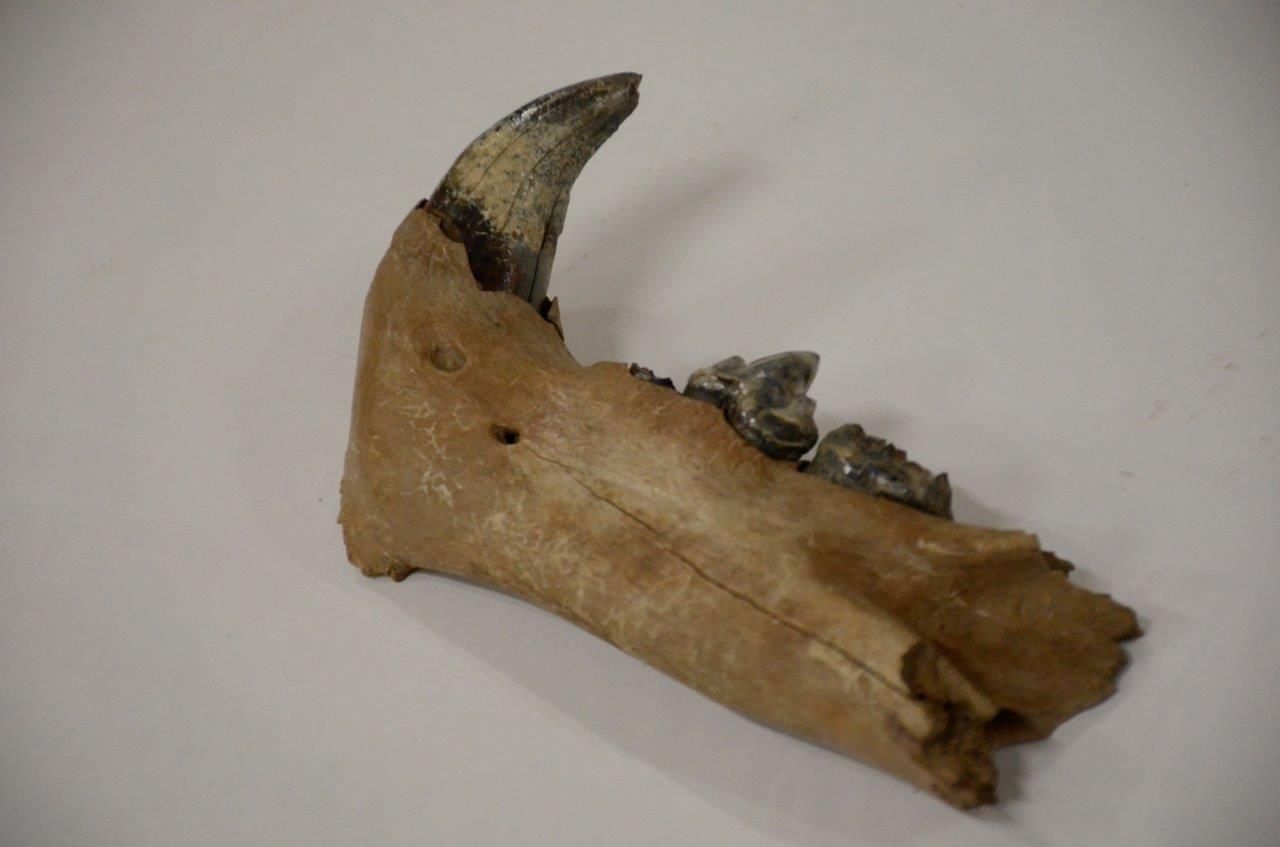
Coal miners in Siberia may have found the remains of a long-extinct Ice Age predator that is thought to be a distant ancestor of the lion.
The KRU coal mining company announced in a statement Thursday that its workers made the unusual find while digging in the Kemerovo region of southwestern Siberia.
Related: 14-inch tusk "spear" found inside the remains of a woolly mammoth
A picture released by the company show remains that experts say are jawline fragments of a big cat that can be dated to roughly 30,000 years ago. As the bones were found in a cave, Russian media has been referring to the ancient beast as a "cave lion."
"This is a very big rarity," Dmitry Slobodin, at the Department of Scientific Research and Expeditions at the Kemerovo Regional Museum—where the remaind have been donated, said.
"There are no remains of a cave lion at all, in any museum collection across Siberia. This is an invaluable gift on behalf of the Mokhov facility miners, not only to our museum but to the Kemerovo region."
Deeper study into the remains will continue at the museum in Kuzbass, where a delegation of scientists from the Russian National Academy of Science's Paleontology Institute will analyze the fossils, the coal company said.
If the remains did it fact belong to a prehistoric lion, it would be Siberia's second such find in recent months. In November, scientists found the well-preserved remains of a cub in the Abyisky district of Yakutia in November.
The northeast of Siberia has proven particularly valuable for scientists because extinct species lost in its permafrost could yield valuable DNA samples, unavailable anywhere else. In 2015 scientists uncovered two lion cubs in the Yakutian ice, where they spent at least 12,000 years frozen but nearly perfectly preserved, National Geographic reported.
Uncommon Knowledge
Newsweek is committed to challenging conventional wisdom and finding connections in the search for common ground.
Newsweek is committed to challenging conventional wisdom and finding connections in the search for common ground.
About the writer
I am a Staff Writer for Newsweek's international desk. I report on current events in Russia, the former Soviet Union ... Read more
To read how Newsweek uses AI as a newsroom tool, Click here.








